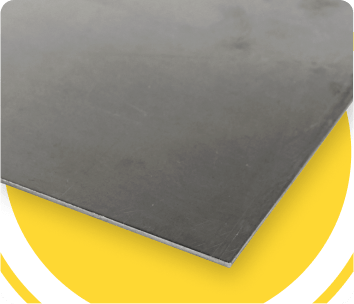Have Specs Ready? Send Us Your RFP for a Fast, Competitive Quote.
Save Big on 36×48 Sheets – Better Yields, Lower Shipping.
Shop Stainless Tubing – Huge Selection, Lower Shipping Rates.

Wide Range of Nickel Sheet/Plate Thicknesses!
We offer several Nickel Sheet/Plate sizes and alloys that maintain their properties in highly corrosive processing environments at cryogenic & elevated temperatures.
Thinking about using carbon steel for your next project? It’s a smart, versatile choice—widely used in everything from construction to automotive to machine parts. To help you consider what you might need, here are five important factors when choosing carbon steel for your needs:
1. Carbon content affects strength and weldability
2. Know your grades: 1018 vs. 1045
Two of the most common carbon steel grades 1018 and 1045 offer you different benefits.
3. Heat treatment can take it to the next level
Carbon steel is highly responsive to heat treatment. Processes like quenching and tempering can enhance strength, improve wear resistance, or fine-tune mechanical performance depending on your end use.
4. Surface hardness
A feature of carbon steel is how it can be hardened on the outside while remaining tough and ductile inside. This makes it a go-to for parts like pins, bushings, and wear surfaces when long term durability is required.
5. It’s cost-effective, eco-friendly with protection
Carbon steel delivers outstanding value. It’s more affordable than many alloy steels while still offering the strength and versatility you need for a wide range of applications. It can be recycled too.
Carbon steel is prone to rust. You can prevent this to extend the life of carbon steel by applying oil coatings, painting, or prevent it from being exposed to moisture.
Some common uses for carbon steel:
How Online Metals Can Help You
Online Metals makes it easy to find exactly what materials you need. With the widest selection of carbon steel shapes and alloys in the U.S.. we deliver both to business and homes with no minimum orders. high tolerance custom cuts all supported by our first in class customer support, fast order processing, and economical on-time delivery.
Nickel, a resilient transition metal with a silvery-white appearance, excels in high strength, outstanding corrosion resistance, heat resistance, and fatigue strength at elevated temperatures, making it pivotal in aerospace, chemical processing, marine components and manufacturing.
We carry a wide variety of Nickel alloys, including: 200, 400, 625 & c276.
Corrosion-resistant
Heat Strength
Fatigue Strength at High Temperatures
No, nickel is not considered a precious metal like gold or platinum. It is categorized as a base metal due to its widespread industrial use and relatively lower value compared to precious metals.
While nickel is known for its corrosion resistance and biocompatibility, its use in medical implants can vary. Some people may have allergies to nickel, and in those cases, alternative materials are preferred. However, certain nickel-containing alloys, like stainless steel, can be used for specific medical implants when compatibility is ensured.
Nickel's robust resistance to corrosion is primarily attributed to its ability to form a protective oxide layer, making it an ideal choice in applications involving high temperatures, aggressive chemicals, and extreme environments. It excels in scenarios where stainless steel may fall short, such as high-temperature settings where nickel-based alloys like Inconel outperform stainless steel grades. Additionally, in corrosive environments, particularly those featuring hydrochloric acid or specialized chemical processing, nickel's superior corrosion resistance is preferred. Its use extends to aerospace, defense, marine, and chemical industries, highlighting its critical role in demanding applications where protection against corrosion is paramount.
Nickel is not commonly used in direct food preparation or cookware due to the potential for allergic reactions and leaching concerns. However, it can be found as a component in stainless steel cookware, where it is typically alloyed with other elements to ensure its safety for cooking purposes.